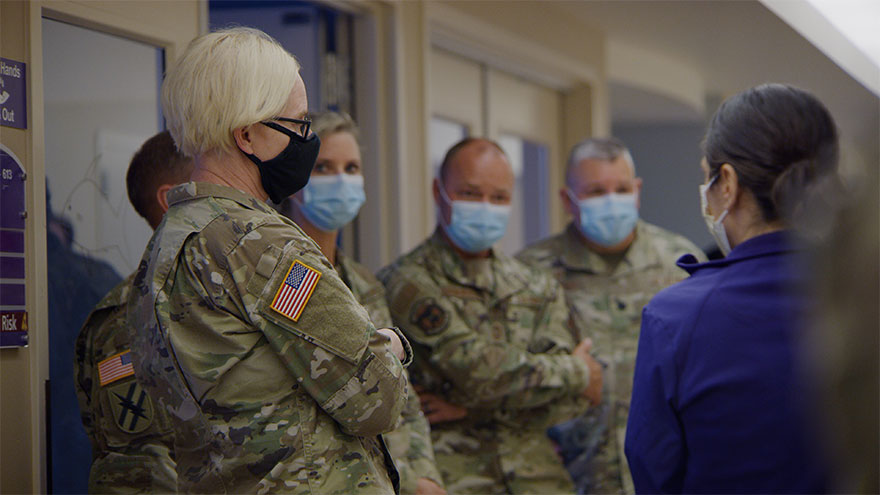Buscar
-
Guide to Injury Healing: Heat or Ice?
Heat and ice are two of the most common treatments used to relieve pain and reduce swelling in injuries. However, each one is better suited for certain types of injuries Dr. Luis Palacio, MD explores the differences between the two. When it comes to treating aches and pains, the debate between heat and ice has been ongoing for quite some time. Both have their benefits making it crucial to understand which option is better suited for your specific needs. Determining which method is better depends on various factors such as the type of injury or pain you are experiencing. For instance, if you have recently sprained your ankle or pulled a muscle during exercise, applying ice within the first 48 hours can help minimize swelling and alleviate discomfort. It's worth noting that some individuals find alternating between heat and ice therapy beneficial as well. This approach combines the benefits of both methods by using heat to increase blood flow followed by ice to reduce inflammation. Cold Therapy Cold therapy can help to reduce inflammation after an injury, heat can have the opposite effect. Therefore, heat therapy should be reserved for those who have chronic pain issues and are not dealing with an acute injury. Cold therapy is often recommended immediately after an injury or during the initial stages of inflammation. Cold therapy such as ice packs are especially effective in treating: Sprains Strains Any injury that involves swelling Heat Therapy Heat therapy is known for its ability to relax muscles, increase blood flow and soothe pain. It is often used for chronic conditions or injuries that are not inflamed. Applying heat can help alleviate stiffness, promote healing and provide a comforting sensation. This increased circulation can bring more nutrients and oxygen to the area, helping it to heal faster. Heat therapy such as heating packs are especially effective in treating: Stiffness with associated pain Injuries that are not inflamed Muscle pain
-
Renown & The National Guard: How These Employees Serve with Maximum Impact
Jason Farnsworth, Evan Fox and Jennifer Jenni are three of Renown’s more than 500 employees who currently serve, or who have served, in our miliary. Their deep-rooted passion for helping our community extends to the Nevada National Guard (NANG), an organization that shares many values with Renown. We sat down with Jason, Evan and Jenni to ask their perspective on what propels them to serve people in our home state and learn more about how Renown's partnership with the Nevada National Guard has supported their personal and professional growth. Meet Jason Farnsworth, the Face Behind Renown’s Partnership with the National Guard Jason Farnsworth is the Director of Respiratory Care Services at Renown and the Chief Master Sergeant, Medical Superintendent of the Nevada National Guard. He has been with the Guard and Renown for 23 years. Jason joined the Guard over 20 years ago to help pay for his college education. After using up his paid vacation time from Renown for Guard events like deployments or training in his initial years as a Guard member, Jason approached Renown senior leadership with the idea of paid military leave. “In full support of employees who choose to serve, Renown stepped up to give a resounding, ‘yes,’ as they have time and time again for our military community,” Jason said. From that day forward, policies were implemented at Renown to further support individuals who serve our country with paid military leave. As a result, Jason submitted an Employer Support of the Guard and Reserve (ESGR) Secretary of Defense Freedom Award nomination and Renown Health won the highest-level department of defense employer recognition in the nation. Since then, Jason has received four associate degrees, one bachelor’s degree and a master’s degree with the government’s support and has been promoted several times to his current roles at Renown and the Guard. “As I progressed at Renown, I was able to progress in the National Guard. They've complimented one another on leadership skills and clinical competencies.” How Evan Fox Finds Synergy in His Roles at Renown and the National Guard After five years as a cardiac intensive care unit (ICU) nurse at Renown Regional Medical Center and two years as a First Lieutenant Critical Care Nurse in the Guard, Evan Fox has implemented care plans for many community members and put his expertise to good use. The countless trauma hours he has completed at Renown have directly translated to the field as a Guard member. He states that “his roles are synergistic, and his innumerable hours of critical care are worth their weight in gold because of the transferability between the two positions.” Evan’s Roles Provide Service to Our Community, and Beyond Evan feels passionately that his experience with the Guard is unique because you live in the area that you serve, whereas with other military branches you are often stationed elsewhere. Recently, he’s cared for many people involved in firefighting missions in our surrounding areas. As a member of the medical group of the Nevada National Guard, Evan is prepared to provide critical care at any given moment in the event of deployment due to a natural or man-made disaster. He can provide critical care in our region and across the nation. How Jennifer’s Leadership Journey Continues to Grow Jennifer Jenni is the nurse manager of the cardiac ICU and intermediate care unit at Renown Regional Medical Center. She has been with Renown for 13 years and initially started at Renown South Meadows Medical Center in the general surgical unit. She felt compelled to take advantage of Renown’s development programs as she worked her way up to supervisor and now as a manager. She is also a registered nurse and captain in the Nevada National Guard as well as a member of an enhanced resource force team, equipped to provide aid anywhere in the nation in the event of a disaster. With Jennifer, People Always Come First Her dedication to serving people has always been a part of who she is, even before she became a leader. From an early age, Jennifer felt strongly that she wanted to be involved in the military in some way stating that “the Guard is very much a service to the people, whether it's our community or nationwide.” While her clinical leadership qualities and skills have translated well to her role as a captain, holding two leadership titles is no easy feat – especially when it comes to the continued training her roles require. However, because of the support Renown provides its military community, Jennifer was able to confidently attend officer training in Alabama last year. Jennifer was fully supported by her Renown team when she was away and took advantage of her paid military leave benefit. More Than Just a Partnership, but a Family Jason, Evan and Jennifer are among the many employees who choose to serve both here at Renown and in the Guard. You might see National Guard members who are also Renown employees in areas like the cardiac ICU, trauma ICU, emergency department or medics who work on hospital floors. “Not only is my family out at the National Guard, but they are also here at Renown. It’s amazing to see how many people spend their lives giving back,” Jason said.
Read More About Renown & The National Guard: How These Employees Serve with Maximum Impact
-
Avoid Heat Exhaustion With This Simple Checklist
Young children under 4 and adults over 65 are especially vulnerable to heat exhaustion. Avoid heat exhaustion this summer with some expert tips. Northern Nevada summers can be downright hot, and although the balmy temperatures can feel great, they may cause heat-related illness, also known as heat exhaustion. Infants and children under 4 and adults over 65 are particularly vulnerable to heat exhaustion because their bodies adjust to heat more slowly. Without proper intervention, heat exhaustion can progress to heat stroke, which can damage the brain and other vital organs and even cause death. The Warning Signs of Heat Exhaustion Heavy sweating Elevation of body temperature Paleness Muscle cramps Tiredness, weakness, dizziness Headache Fainting Nausea or vomiting Cool and moist skin Fast and weak pulse Fast and shallow breathing Heat stroke happens when the body’s temperature rises rapidly and the body loses its ability to sweat. The Symptoms of Heat Stroke Body temperatures rising to 106 degrees or higher within 10 to 15 minutes Red, hot and dry skin (no sweating) Rapid, strong pulse Throbbing headache Dizziness or nausea Prevention and Treatment Make sure your air conditioner works Stay indoors and drink plenty of fluids Limit strenuous outdoor activities to mornings and evenings Drink plenty of water throughout the day Avoid caffeine and alcohol Do outdoor activities in the shade and wear light, loose clothing Take plenty of breaks and drape a wet bandanna around your shoulders to cool down If you suspect you or someone else is headed toward heat exhaustion or heat stroke, call 911 immediately.
Read More About Avoid Heat Exhaustion With This Simple Checklist


